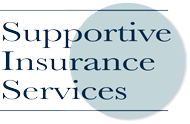Insurance claims adjusters often have a lot of questions regarding their licensing requirements, including whether a license is needed in the first place regardless of whether they are an independent, staff, or public adjuster. At Supportive Insurance Services, we’re in the insurance licensing business and happily review the ins and outs of what is required for an adjuster’s license. Of course, licensing depends on the state, where one works and if you need to obtain a non-resident adjuster’s license, among other issues. What goes into getting a license also involves a number of requirements depending on the state, including fees, fingerprints, bonds, etc. We review all of the details with our claims adjuster clients and can do so for you, too.
Another topic that comes up among claims adjusters is the need for Errors & Omissions (E&O) or Professional Liability insurance. Although we are not insurance advisors, we work with many agents and agencies and surplus lines carriers to help them get their insurance licenses and are therefore familiar with the coverages they offer to claims adjusters.
E&O insurance coverage is indeed available for claim adjusters (independent and staff), public adjusters, insurance examiners, insurance investigators, third-party adjusters, and other specialty adjusters. Although there is no standard E&O insurance policy, it generally covers the professional, his or her partners and employees, and the professional’s corporation or partnership for damages directly caused by providing or failing to provide professional services. This can include actual or alleged negligent acts, misstatements, misleading statements, and errors or omissions when carrying out professional services. Damages in E&O claims usually means a monetary loss suffered by the professional’s client as a direct result of relying on his or her work.
A claims adjuster can be sued by the person or entity for which he or she is adjusting the claim. In addition, as an independent or public adjuster, one can be sued by the insurer for which he or she is providing the adjusting services. Examples of lawsuits against claim adjusters include allegations of unfair claims settlement practices, overpayment, and breach of contract.
It’s wise to speak to a professional insurance advisor to make sure that your E&O insurance coverage is in order so that you’re adequately protected in the event of a professional liability claim. When it comes to your licensing needs, including ensuring that you’re in compliance in your own state, as well with non-resident adjuster licensing requirements, continuing education, and renewal licenses, you can rely on the experts at Supportive. Just give us a call at 317.257.5734 or fill out the form below to discuss your claims adjuster licensing needs.
Disclaimer: The insurance licensing information provided on this blog is not legal advice and the reader is advised to consult an attorney for questions regarding the legal ramifications of this information.
